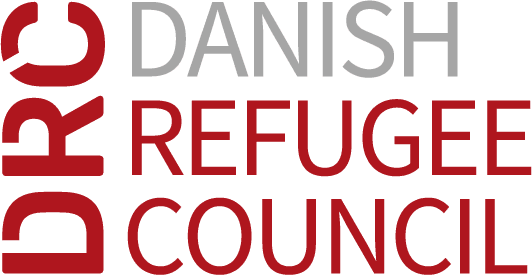

Integrating Ukrainian diaspora organizations into the wider humanitarian response
03 January 2023
Hosted by the Danish Refugee Council (DRC), DEMAC - Diaspora Emergency Action & Coordination aims to link diaspora organizations with the wider humanitarian emergency response system to increase coordination and localization.
Hosted by DRC and funded by USAID and DANIDA, the DEMAC serves as a bridge between diaspora organizations around the world, local NGOs in their countries of origin and the institutional humanitarian response on the ground. Its purpose? To improve coordination and communication between diaspora organizations (DOs) and the wider humanitarian system. As of now, DEMAC works with Syrian, Afghan, Somali, Pakistani and many other DOs.
"Diaspora organizations are not included in the humanitarian coordination system due to the lack of awareness on their work, their workforce consisting mainly of volunteers and their often limited experience in coordination and humanitarian mechanisms", explains Monika Grinschgl, Communications Specialist with DEMAC at Copenhagen Headquarters.
Our mission is to improve coordination and collaboration among diaspora organizations providing humanitarian assistance and across diaspora organizations and institutional humanitarian actors. We further aim to increase visibility and engagement for diaspora organizations in the humanitarian system.
The case of Ukrainian diaspora organisations
Diaspora organizations have been proven to provide highly valuable assistance in times of crises through rapid and significant monetary and aid support to local NGOs on the ground and with direct provision of humanitarian assistance to affected populations. Indeed, during the first month of the war in Ukraine, most of the international funding was channeled to the UN or other international actors, while local NGOs and civil society actors received very little direct funding.
Nevertheless, Ukrainian diaspora organizations in host countries were able to mobilize quickly to fundraise within the first few days of escalation and were quick to provide humanitarian assistance in Ukraine and to release funds to local NGOs that they had previously been acquainted with through DEMAC. For this reason, DEMAC serves to increase their visibility, strengthen their capacities and advocate for their inclusion in the wider humanitarian system.
DEMAC links diaspora organizations with clusters and local NGOs, international organizations and local authorities – basically any relevant actor present in the coordination system in Ukraine.
"Since most of the diaspora networks are made up of volunteers that are working very hard to assist the humanitarian crisis in Ukraine, many of the organizations do not have much time to attend cluster meetings. For this reason, we at DEMAC, provide them with a weekly summary of the meetings, especially on the status of humanitarian needs for their planning purposes," states Dina Volynets, Diaspora Liaison Officer in Ukraine.
Clusters lack the resources and capacity to support local NGOs and Ukrainian diaspora organizations with the practical or operational matters they are facing. Therefore, DEMAC fills this gap and provides tailored support such as advice on customs clearance, tracking lost containers, linking with local authorities, and clarifying the log cluster procedures, amongst others.
In addition, this relay of information helps diaspora organizations to recognize and fill gaps in the humanitarian response when they have the resources to do so. "As I am based in Ukraine, I also update diaspora organizations on the situation here, so that they can coordinate their logistics accordingly when they send help," Dina Volynets says.
"Clusters lack the resources and capacity to support local NGOs and diaspora organizations with the practical or operational matters they are facing. Therefore, DEMAC fills this gap and provides tailored support such as advice on customs clearance, tracking lost containers, linking with local authorities, and clarifying the log cluster procedures, amongst others," Raphaël Capony, Head of DRC Diaspora Programme in Copenhagen, explains.
Creating a network
DEMAC is a brilliant platform, and we are very satisfied with the activities we get involved in. We get good reports on the situation on the ground in Ukraine. And we got connected with local organizations, which brings a lot of trust.
Additionally, Bevar Ukraine - the largest Ukrainian Diaspora Organization in Denmark, now collaborates with several local Ukrainian NGOs on the ground which they got to know through DEMAC’s meetings and workshops. Andrii Andrii Kuzmyn, Chair of Bevar Ukraine, even states that "the Ukrainian diaspora is a good example of why diasporas exist and why the topic around humanitarian response should be considered more".
Thanks to this work, DEMAC improves local NGOs' strengths and makes them more resilient. Through the established link with the diaspora organizations that have the capacity to fundraise and provide support local NGOs and the Ukrainian civil society are empowered. This enables a more resilient Ukrainian transnational civil society and supports the localization agenda, one of the main commitments of the Grand Bargain.
Overall, the inclusion of diaspora communities in the broader humanitarian system ensures a more relevant, efficient and sustainable humanitarian response.
Photo Credits: Antoine Tardy, Stefanie Glinski, DRC
Andrii Kuzmyn of Bevar Ukraine on the importance of including diasporas in humanitarian response
Bevar Ukraine is a Ukrainian diaspora organization based in Denmark and has been at the forefront of preparing and responding to the escalating conflict in Ukraine.
That could also interest you

DEMAC increases operational resources in Ukraine
Scaling-up resources in Ukraine for a better coordinated humanitarian response!

It will never be the same! How the Ukrainian diaspora fills a gap in humanitarian response
Raising awareness for diasporas' emergency response.

Andrii knew the war was coming
How Bevar Ukraine prepared for emergency response from Denmark






